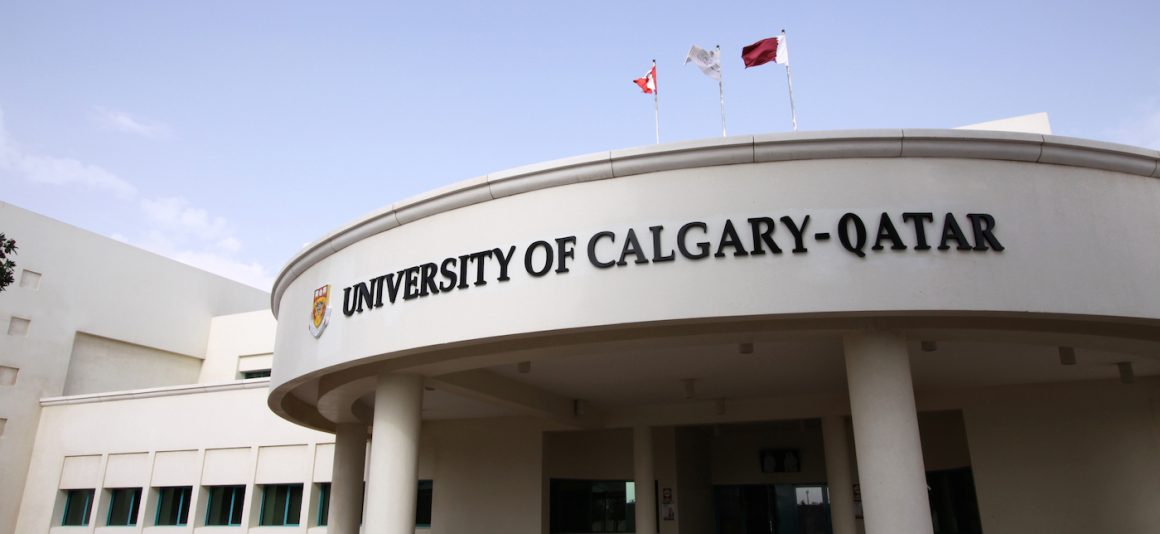
Amnesty International clubs send letters to presidents of universities with ties to Qatar
By Scott Strasser, November 22 2016 —
A coalition of 10 Amnesty International student clubs around the world have sent letters to presidents of universities with satellite campuses in Doha, Qatar.
The letters ask university presidents to use their leverage on the President’s Council — an international forum among universities in Education City and Qatar’s leaders — to pressure the country’s authorities to implement a binding labour reform plan for migrant workers working on construction sites for the 2022 FIFA World Cup.
Education City is a district in Doha with eight satellite campuses for universities from the United States, United Kingdom and France. The district is located near the construction site for Khalifa Stadium — a venue that will host World Cup matches in 2022.
The letter’s seven demands are adapted from an Amnesty International report from March 2016, titled “The Ugly Side of the Beautiful Game: Exploitation of Migrant Workers on a Qatar 2022 World Cup Site.”
“We urge you, as the presidents of institutions of higher education that have campuses in Qatar, to pool your considerable leverage to stand in solidarity with this critically important campaign,” the letter reads.
The Amnesty International student club at the University of Calgary is part of the coalition, which includes nine other student clubs from eight universities in the U.K., U.S. and France. The Amnesty International at Cornell University club and the Cornell Organization for Labour Action started the coalition.

Khalifa Stadium in Doha, Qatar // Courtesy Doha Sam
“These abuses are very relevant to our campuses in Qatar,” Amnesty International at Cornell University co-president and campaign facilitator Chris Hanna said. “World Cup 2022 construction sites sit within mere miles of our universities, which have immense institutional power in Qatar. Our institutions have robust relationships with Qatar and we want to see those positions of influence used for the greater good.”
In 2010, the Fédération Internationale de Football Association (FIFA) selected Qatar to host their World Cup in 2022.
Since winning the controversial bid, Qatar has faced criticism for human rights violations of migrant workers at construction sites for the tournament.
Humans rights activists reported that migrant workers were “treated like cattle” by their Qatari employers in 2013. The International Trade Union Confederation later predicted that at least 4,000 migrant workers would die due to work-related incidents before the tournament began.
In response to the criticism, Qatar’s Supreme Committee for Delivery & Legacy drafted labour standards for workers at its FIFA World Cup sites in 2014. However, Amnesty International later reported the welfare standards were not largely enforced. In March 2016, the organization published their report discussing the working conditions for migrant workers.
Despite the coalition’s lofty demands, Hanna believes the initiative may result in positive change for migrant workers in Qatar. He said that last spring, Cornell University’s then-acting president Michael Kotlikoff said he supported using the President’s Council to pressure Qatari authorities to better respect human rights.
“This means that there’s a precedent for powerful institutions to stand up to Qatar’s notoriously authoritarian regime and demand urgent action to safeguard human rights,” Hanna said. “We think that Qatari authorities want to maintain good relations with our universities, given how wealthy and renowned they are. This means there is room for institutional pressure to be exerted.”
The U of C’s Faculty of Nursing has a satellite campus in Doha. Created just under 10 years ago, the campus has around 570 nursing students and more than 50 faculty members.
While the U of C’s Qatar campus is not technically in Education City — and therefore not a member of the President’s Council — Hanna thinks the U of C still could play an influential role in changing Qatar’s policies to better protect migrant workers.

Education City is a district in Doha // Courtesy Francisco Anzola
“We suspect that although the University of Calgary’s campus sits outside Education City, it still actively communicates with both Qatari authorities and other international universities,” Hanna said. “We think that our presidents, on the other hand, fully understand that our universities’ engagement in Qatar hinges on that country’s respect for basic human rights.”
The U of C’s Amnesty International student club missed the coalition’s Nov. 14 deadline for distributing the letter, meaning U of C president Elizabeth Cannon hasn’t yet seen the coalition’s letter. Club president Sara Kohandel said she hopes and expects Cannon will agree with the initiative.
“For this campus to be associated with a university that doesn’t necessarily uphold values of human rights would be a bold statement,” Kohandel said. “I think using our power in a very liberal, democratic country to urge other countries to follow suit is a really important thing and it’s one of the powers we have as an institution.”
Cannon provided the following statement on the U of C’s Qatar campus:
“The university has been in Qatar for nearly 10 years and strives to be a model of excellence in international nursing education. The programs enrich health and wellness in Qatar by educating and developing world-class nurses.”
According to Hanna, the coalition demands Qatari authorities implement labour reforms before construction for the 2022 FIFA World Cup peaks in mid-2017.
